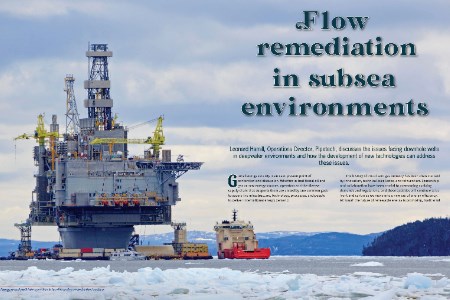The energy industry is braced for short-term uncertainty caused by global instability, but remains optimistic in the long-term, according to DNV’s annual Energy Industry Insights survey.

The report finds that political risk is seen as the leading barrier to growth for the year ahead, with the perceived momentum of the energy transition slowing. Only 55% of energy professionals now believe the transition is accelerating, down sharply from 72% last year and 79% the year before.
Moreover, 51% of respondents believe that ultimately, a successful energy transition may negatively impact some communities, this could include economic displacement, uneven distribution of benefits, and prohibitive costs. Workers in traditional energy sectors may lose jobs without retraining opportunities, and poorer regions might struggle to adopt new technologies. In order to address this, respondents stressed the need for affordable, accessible clean energy technologies to be implemented by using innovative funding models to ensure the shift to sustainable energy creates real, lasting benefits for all.
Short-term volatility, long-term optimism, DNV’s 15th annual survey of the industry, has compiled the views of over 1100 senior energy professionals. It also revealed that:
Ditlev Engel, CEO Energy Systems at DNV, said, “A successful energy transition is not impossible, but the urgency to accelerate action has never been greater.
“The path to a cleaner, more sustainable energy future is inherently complex and uneven, but delay is not an option. Immediate, coordinated efforts are essential to ensure momentum is not lost. Geopolitical instability, including trade disputes and economic concerns, is pressuring global energy markets and causing uncertainty. These challenges pose threats to progress and require strategic navigation.
“Despite this uncertainty, our industry remains focused on the long-term vision. As a whole, we are committed to building a resilient, low-carbon energy system that minimises emissions, is affordable and sustainable, while meeting the world’s growing energy demand.”
There is notable caution in the renewables sector, with revenue and profit outlooks particularly pessimistic. Just 50% of respondents expect to meet revenue targets and only 43% are optimistic about profits, a steep decline from the 75% and 67% reported three years ago.
The result of the economic picture, geopolitical conflicts, and policy uncertainty is that the industry is deferring investment decisions or choosing smaller projects for the time being, with only 39% in renewables expecting their businesses to increase investment in the coming 12 months.
Lucy Craig, Director of Growth, Innovation and Digitalisation, Energy Systems at DNV, said, “Despite these short-term concerns, underlying sentiment remains strong, indicating that this challenging stretch will be overcome.
“Nearly 70% of energy professionals remain confident in the industry’s growth outlook, and this optimism is grounded in megatrends that continue to shape the future including widespread electrification, the urgency of climate action, and advances in energy technology.
“As the energy system becomes more electrified, distributed, interconnected and dynamic, adopting taking a whole systems approach will be essential. This means viewing the energy system as an interconnected whole, one that enables greater efficiency, flexibility, and resilience.”
A majority (64%) believe a whole systems approach is impossible without a fully digitalised infrastructure. Digitalisation plays a crucial role in the energy transition. It's encouraging for the industry that, despite short-term fluctuations, 59% of respondents plan to boost their spending on digitalisation – a trend that has remained steady over the past four years. This investment encompasses technologies such as artificial intelligence (AI).
Ageing power grids are proving a major bottleneck, with over three-quarters of power sector professionals citing outdated infrastructure as a barrier to renewables adoption, while 96% call for urgent investment to modernise the grid.
Craig added, “Digitalisation, including AI, are key to enabling a whole energy systems approach and power grids are at the heart of this transformation. With electrification playing such an important role, there is an urgent need for increased investment in power grid infrastructure to support the electrification and distribution of renewable energy. If not, it could be an important barrier to the transition in different geographies around the world.”
Read the article online at: https://www.oilfieldtechnology.com/special-reports/29042025/energy-industry-faces-short-term-instability-yet-remains-optimistic-about-long-term-prospects-dnv-report-reveals/






